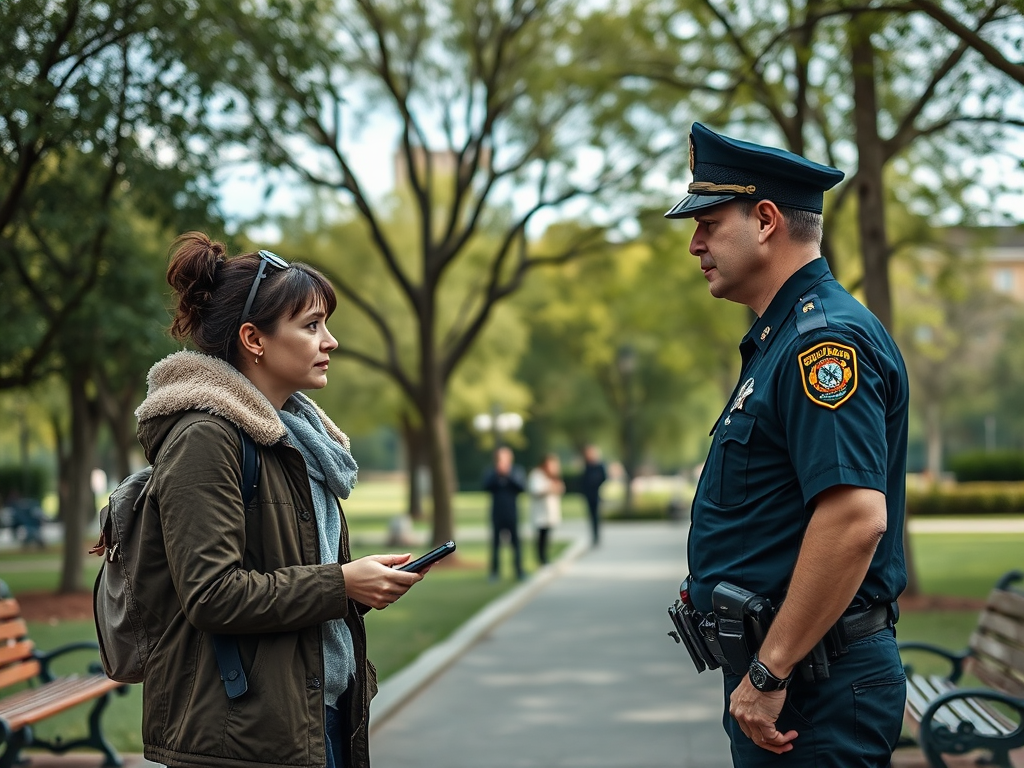In today’s fast-paced world, our smartphones are more than just devices; they’re extensions of ourselves. The moment we realize that our phone is missing, panic can set in. Is it lost, or has it been stolen? Understanding the difference can significantly impact how you respond, and, importantly, how you manage your data and security. Whether it’s filing a police report for theft or utilizing tracking technology to locate a misplaced phone, every second matters. This article aims to clarify the distinctions between a lost and stolen phone, providing you with essential strategies to navigate these frustrating situations. Here, we’ll explore definitions, actionable steps, and preventive measures, ultimately empowering you to manage your device more effectively.
Defining a Lost Phone

A lost phone refers to a device that has been misplaced, often in a location the owner may not recall. This can happen virtually anywhere—such as a café, public transit, or even your home. Unlike theft, loss does not involve the intention to take possession unlawfully. Some scenarios might include leaving your phone on a table or accidentally dropping it in a pocket of your bag. The feeling of losing your phone can invoke stress, but it’s essential to stay calm and take appropriate steps. In most cases, lost phones can often be recovered with the right measures.
What Constitutes a Lost Phone?
To further understand the concept of a lost phone, it’s crucial to define what conditions qualify. Here are some examples to illustrate:
- Leaving your phone on the table at a restaurant and realizing it later.
- Misplacing your phone at home while tidying up or moving furniture.
- Forgetting your device on public transportation.
- Accidentally leaving it in a friend’s car.
Steps to Take When Your Phone is Lost
If you’ve determined your phone is lost, it’s vital to act quickly. Start by using tracking software like Find My iPhone or Google’s Find My Device. If you have activated these services in advance, locating your phone becomes much easier. If tracking isn’t an option, try to retrace your steps. Contact any venues or public transit systems you visited recently; they might have discovered your device. Lastly, report your phone as lost to your mobile carrier to prevent unauthorized use.
Defining a Stolen Phone

Contrary to a lost phone, a stolen phone involves the unlawful taking of your device by someone with the intent to deprive you of it. This act is often malicious and can occur in various situations, such as theft in public places or through pickpocketing. Understanding this distinction is vital, especially when it comes to law enforcement and insurance claims. Knowing your rights can guide you through a stressful experience and provide clarity on the necessary steps to take. Recognizing the context can also aid you in seeking assistance from authorities.
What Constitutes a Stolen Phone?
A stolen phone might encompass various scenarios, including:
- Having your phone snatched while you are distracted.
- Experiencing a break-in where your device is taken from your home.
- Discovering that your phone was “swiped” from your bag or pocket.
- Receiving alerts that accounts linked to your phone have been compromised.
Steps to Take When Your Phone is Stolen
When facing the unfortunate circumstance of having your phone stolen, immediate action is crucial. First, report the theft to your local authorities, as this creates a record of the crime. Next, contact your mobile carrier and report the theft so they can disable your device and potentially prevent unauthorized usage. Additionally, if relevant accounts (such as email or banking) are associated with that phone, change your passwords immediately. In certain cases, you might also be able to track your phone using built-in software, provided the thief has not turned it off. Filing a police report will also assist in any future insurance claims.
Key Differences Between Lost and Stolen Phones
| Aspect | Lost Phone | Stolen Phone |
|---|---|---|
| Intent | No malicious intent | Deliberate theft |
| Response | Track and report | Report to authorities |
| Insurance | Possible claim | Claim likely required |
Understanding these differences can help in crafting a more effective response. Legal implications vary, and recognizing whether your phone is lost or stolen will guide you in seeking the appropriate protection and recovery methods.
The Impact on Insurance Claims
How you classify your phone’s loss can significantly affect your insurance claims. Most policies allow for coverage on both lost and stolen phones, but the process for filing a claim will differ. It’s essential to understand your policy details, as some may require you to provide a police report for stolen devices while simply reporting the loss for a misplaced one might be sufficient. Ensuring you meet your insurer’s requirements can increase your chances of a successful claim, so be prepared with necessary documentation. Despite these differences, taking swift action is crucial to protecting your financial investment.
Protecting Yourself in Both Scenarios
Preventative Measures
Take proactive steps to safeguard your phone against both loss and theft. Here’s a list of best practices for keeping your device secure:
- Enable tracking features on your phone.
- Set a strong password or biometric security.
- Back up your data regularly to the cloud.
- Be aware of your surroundings, especially in crowded areas.
What to Do After Recovery
If you manage to locate your lost phone or recover your stolen device, there are essential steps to take. Firstly, check for any signs of tampering or unauthorized access to your accounts. Review potential malware threats by scanning your device with trusted security software. Change your passwords on all accounts associated with your phone, just in case. You should also notify your mobile carrier that you have recovered the device to prevent any issues with billing or service. Remaining vigilant after recovery is just as important as protecting your phone beforehand.
Conclusion
Distinguishing between a lost phone and a stolen phone is vital in our modern, interconnected world. Understanding these differences not only guides your immediate responses but also influences the long-term security of your personal data and financial investment. By familiarizing yourself with both situations, implementing preventative measures, and knowing how to respond appropriately, you can navigate these challenges with confidence. Whether it’s leveraging technology to track your phone or swiftly reporting theft to authorities, being prepared is your best defense. In the end, maintaining awareness and knowledge will immensely help in protecting your indispensable device.
Frequently Asked Questions
- What should I do if I’m unsure whether my phone is lost or stolen? Check for tracking options and contact your carrier for help.
- Can I make an insurance claim for a lost phone? Yes, most insurance policies cover lost phones, but specific conditions apply.
- How can I track a lost phone? Use built-in tracking features like Find My iPhone or Google’s Find My Device.
- Is it illegal to use a found phone? Yes, it is considered theft if the owner is not contacted.
- What information do I need to file a police report for a stolen phone? Model, IMEI number, location of theft, and any relevant evidence such as photographs.


